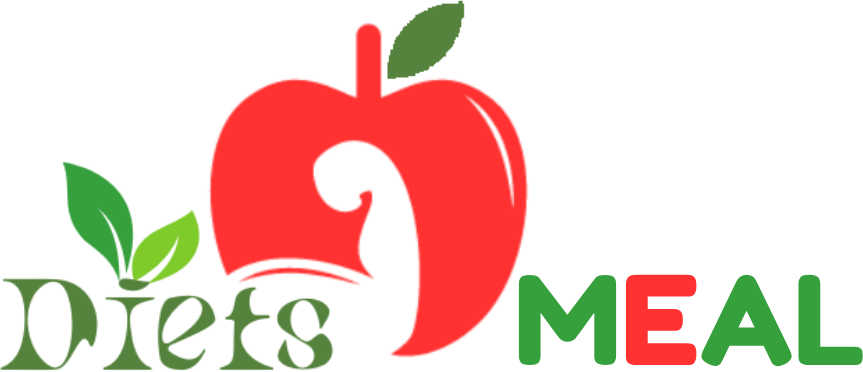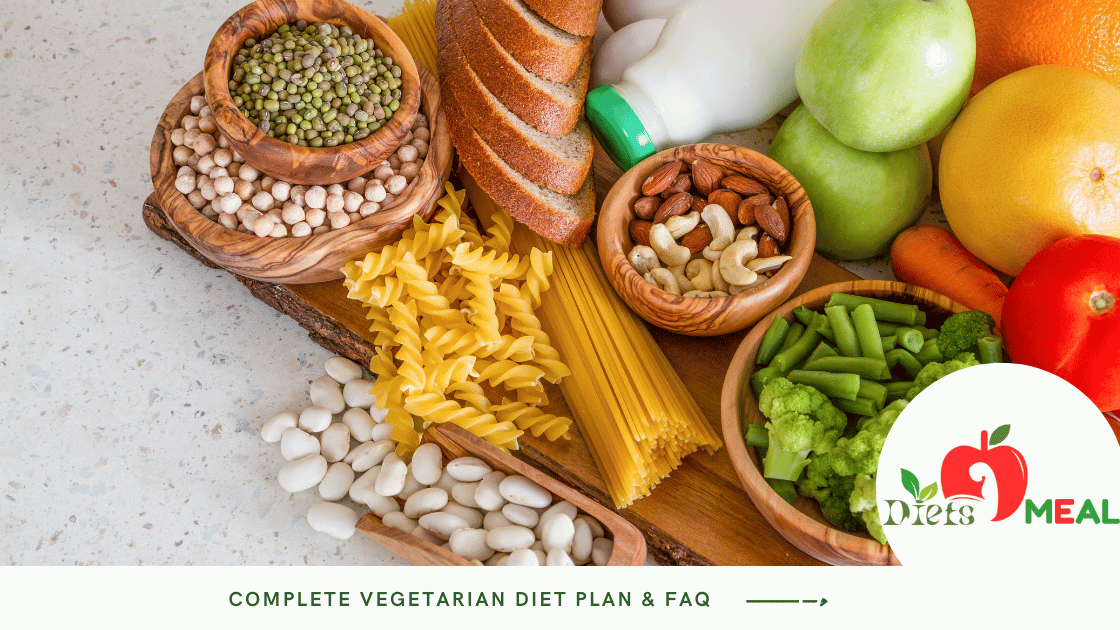Vegan and vegetarian diets provide all of the essential nutrients required for good health if diet choices are planned appropriately, making this diet option especially advantageous for pregnant women, breastfeeding mothers and young children.
Some individuals choose vegetarianism for cultural, ethical or health reasons. People who forgo eating animal products should ensure their diet includes fruits and vegetables along with whole grains and protein-rich foods to sustain a vegetarian lifestyle.
How to start a vegetarian diet?
Vegetarianism offers several health advantages; whether for ethical or health reasons. Cutting meat intake reduces your risk of cardiovascular disease, high blood pressure and cancer while providing essential proteins, iron, vitamins minerals and phytochemicals your body needs to thrive.
Begin by increasing the vegetable content in your meals – leafy greens, mushrooms, kale and spinach are all healthy choices that provide essential nutrition. Beans and whole grains will fill you up while providing vital minerals like zinc, fiber potassium and protein for optimal wellbeing.
Make sure your diet contains foods rich in vitamin C, which will help your body absorb iron more effectively. Choose fruits like citrus, berries and kiwi fruits for vitamin C intake as well as nuts and seeds high in protein and healthy fats, such as nuts and seeds; tofu; tempeh; tempeh; tempeh; tempeh; tempeh; tempeh, tempeh and seitan from soy products like tofu, tempeh tempeh edamame seitan can also meet protein requirements; finally for those lacto-ovo vegetarians to include eggs or milk for protein needs while Vitamin B12 supplements such as fortified breakfast cereals as well as soy or rice beverages are great ways of protecting against deficiencies which could result in pernicious anemia.
What is high protein vegetarian diet?
Vegetarians who opt for high protein vegetarian meals typically do so by eating a variety of food sources to meet their nutritional requirements and prevent deficiencies. As some nutrients such as iron and vitamin B12 are typically found only in animal products, vegetarian diets require extra intake to meet nutritional needs and avoid deficiencies.
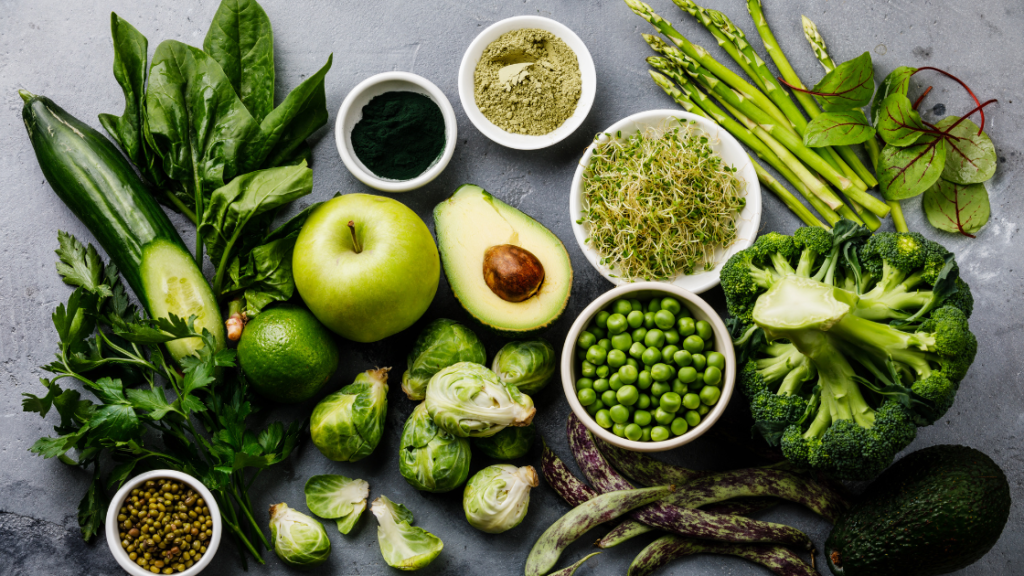 Vegans looking for an increased protein intake can meet their protein needs through foods like beans, soy products, nuts and seeds – which also offer fiber, vitamins and minerals that may help lower cholesterol, heart disease risk and obesity risk.
Vegans looking for an increased protein intake can meet their protein needs through foods like beans, soy products, nuts and seeds – which also offer fiber, vitamins and minerals that may help lower cholesterol, heart disease risk and obesity risk.
Some vegetarians eat only plant-based foods and are known as vegans; others combine meat and plant foods into their diet and are called flexitarians. Individuals on a vegetarian diet may need dietary supplements in order to ensure they receive enough protein, iron, calcium and vitamin D; registered dietitians can assist people on vegetarian diets plan nutritious and delicious meals as well as offering advice about food safety as well as helping with cooking and shopping for groceries.
What is typically a characteristic of a vegetarian?
Vegetarians are individuals who choose not to consume meat or animal products for various reasons, ranging from ethical and environmental considerations, cultural values or an intention to improve their health. Some vegetarians eat exclusively fruits, vegetables and whole grains while others also consume dairy products, fish and eggs – though no matter what eating pattern is chosen, well-planned vegetarian diets can provide all essential nutrients necessary for good health.
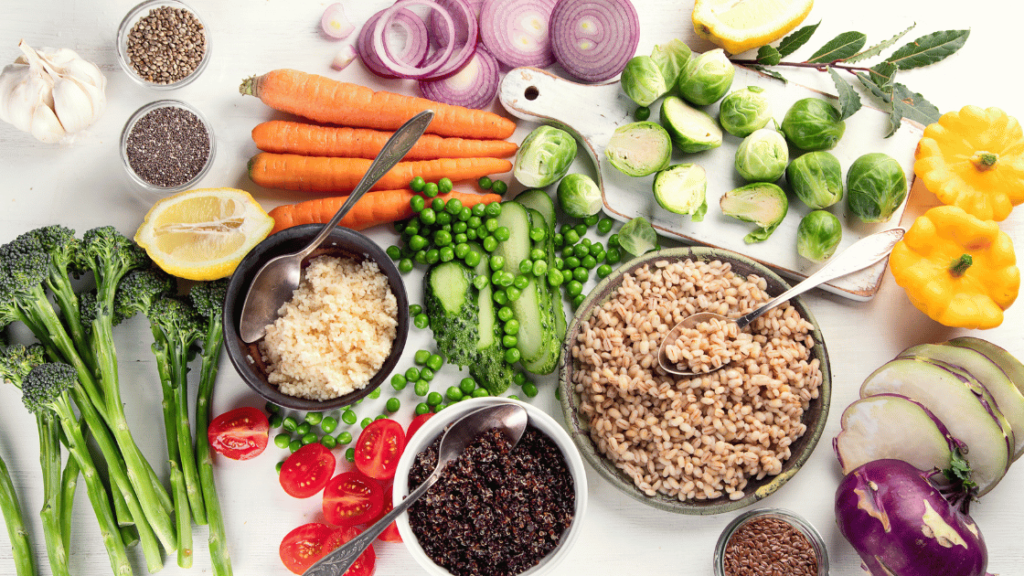
Studies suggest that vegetarians have lower rates of heart disease and obesity than non-vegetarians, according to recent research. A vegetarian diet has also been shown to help manage chronic diseases, including rheumatoid arthritis and fibromyalgia by improving pain symptoms, quality of life (QoL) and sleep quality.
However, meal planning must be carefully managed to ensure you are receiving enough essential nutrients. For instance, this might mean eating foods fortified with calcium and vitamin D or eating plenty of green leafy vegetables and fortified whole grains. Women who are vegetarian or vegan during gestation and breastfeeding may require extra iodine and folic acid supplements.
How do you get enough protein on a vegetarian diet?
Protein plays an integral part of building muscles and other body systems, and should be part of our diets in sufficient amounts. Made up of amino acids, it’s vital that enough of this essential nutrient reaches our bodies every day; vegetarian foods contain plenty of this vital nutrient; the Academy of Nutrition and Dietetics recognizes well-planned vegetarian diets as being healthful diets which may even reduce risks for certain diseases.
Vegan diets exclude meat, fish, poultry and all products containing gelatin or rennin (an enzyme found in calf stomachs that is used to produce some cheeses). People following lacto-ovo vegetarian diets — consisting of plant food plus eggs and dairy products — may require less Vitamin B12 supplements.
However, adhering to a vegan diet may be challenging and may not provide all of the essential nutrients. To stay on track with this lifestyle it’s essential that you eat a wide range of plant-based foods with low-fat proteins like beans, nuts, seeds and whole grains as well as drinking plenty of water and eating lots of fresh fruits and vegetables while limiting processed food.
What’s the difference between vegetarian and vegan?
There are various kinds of vegetarian diets. Vegans omit meat from their meals entirely (vegans), while others avoid all food with animal products (vegetarians). Other groups only consume certain animal-derived food products like dairy, eggs and/or fish on occasion (lacto-ovo-vegetarians or flexitarians).
Eating a well-planned vegetarian diet can provide all of the essential nutrients your body requires, but it’s essential that it includes a variety of whole fruits and vegetables, whole grains, legumes, nuts and seeds while restricting processed foods and sugary beverages.
Vegetarians may experience difficulty when it comes to meeting their nutritional requirements for protein, iron, vitamin B12 and calcium intake. A well-planned vegetarian diet incorporating these food groups as well as fortified products like vitamin supplements and fortified milk will help prevent deficiencies from developing. Vegetarianism has been associated with improved health outcomes including lower rates of obesity and chronic conditions like heart disease and diabetes – it’s essential that each vegetarian select a diet tailored specifically to his or her individual needs and goals for optimal wellbeing.
How to get vitamin b12 in vegetarian diet?
Many people opt to become vegetarian for health reasons; others may be motivated by concerns regarding animal welfare or antibiotic use in livestock farms or simply wanting to reduce environmental impact. No matter their motivations are, a well-planned vegetarian diet can still provide all of the essential vitamins and nutrients for good health.
Vegetarians must carefully plan their diet to ensure that they receive enough protein, minerals (iron and zinc), and vitamin B12. These essential nutrients can be found in various food items like beans and peas, tofu, quinoa, nuts and seeds – some vegetarians even choose lacto ovo vegetarianism, where dairy products and eggs are consumed alongside no meat or fish!
Some vegetarian and vegan diets require supplements in order to receive sufficient amounts of essential nutrients such as iodine, calcium, protein and iron. If you are considering adopting such a lifestyle, be sure to speak to both your doctor and dietitian in order to make sure you’re getting an appropriate balance of these essential elements for good health. It is also wise to eat a wide range of nutritious food while limiting processed and refined products along with salt intake.
Does vegetarian diet lower cholesterol?
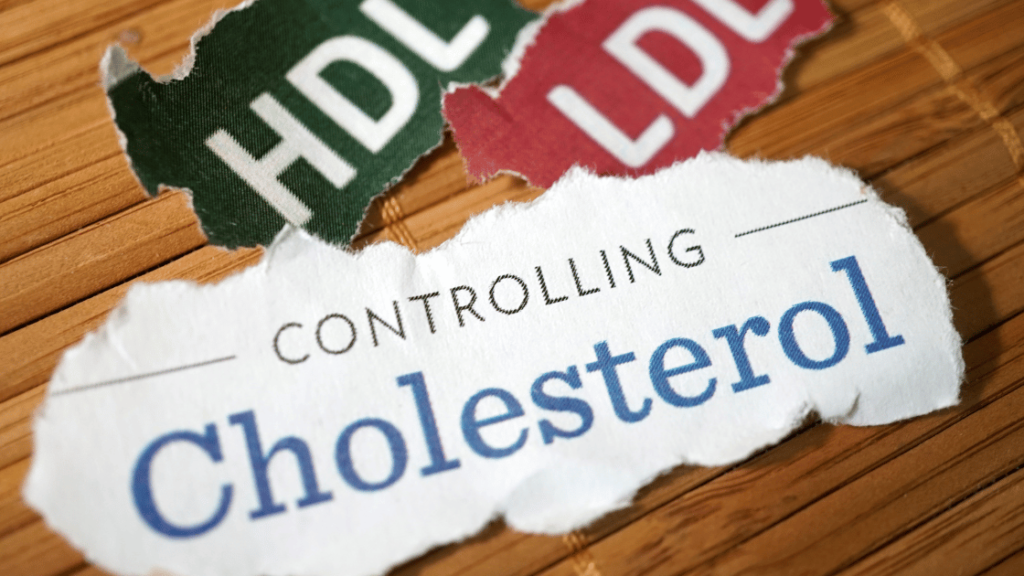
Keio University researchers from Fujisawa, Japan conducted a recent study that shows a vegetarian diet can significantly decrease cholesterol levels and improve cardiovascular risk factors. Their scientists reviewed 30 observational studies and 19 clinical trials which compared vegetarian-type diets with meat-eating diets for their effects on plasma lipids; plant-based diets reduced total and LDL-cholesterol by 10% more than their counterparts while vegetarian triglyceride and apoB blood levels were also lower among them than among non-vegetarians.
A healthy vegetarian diet includes a combination of whole grains, fruits and vegetables, legumes/soy products/low-fat dairy, nuts/seeds as well as reduced salt and fat intake. Vegetarians must make careful selections when selecting their meals so as to receive all of the essential vitamins and nutrients they require for good health.
People following a vegetarian diet must ensure they consume adequate sources of protein, B12, D and calcium – this can be found in egg yolks, fish or fortified milk containing vitamin D – in their daily meals. Most lacto-ovo vegetarians (those who consume no meat but do consume eggs and dairy products) and vegans (those who abstain entirely) consume sufficient amounts of these essential nutrients in their daily lives.
What is a lacto-ovo vegetarian diet?
Lacto-ovo vegetarianism is an eating plan that excludes meat while still including dairy products and eggs, with this type of vegetarianism often being recommended to reduce heart disease risk and other chronic illnesses. A recent epidemiological study concluded that lacto-ovo vegetarians have 29% less risk of ischemic heart disease compared with non-vegetarians.
Many experts advise those considering becoming vegetarian to work closely with a registered dietitian in designing an appropriate vegetarian diet that can meet all their dietary needs, particularly pregnant women, breastfeeding mothers and young children. A well-designed vegetarian diet can provide enough protein, iron, zinc, vitamin B12 riboflavin and alpha-linolenic acid.
Make sure that you are getting enough complete proteins. These are proteins containing all essential amino acids your body cannot produce itself; some sources include tofu, edamame, tempeh and higher protein whole grains such as quinoa and amaranth. You should also try eating foods high in calcium such as fortified breakfast cereals, leafy vegetables or cheese.
Many people turn vegetarian for health, ethical or environmental reasons. A well-planned vegetarian diet can provide all of the essential vitamins and minerals for optimal health.
Vegetarian eaters must take great care in including protein-rich foods in their diet to meet all their nutrient requirements, which includes taking enough vitamin B12 (found only in animal products) as vitamin B12 deficiency can cause neurological disorders and pernicious anemia.
What is ovo vegetarian diet?
Ovo vegetarianism refers to any form of vegetarianism which incorporates eggs and dairy products as part of its menu, making this form less prevalent than vegan diets which do not allow any animal products whatsoever. Yet ovo vegetarians may reap many health advantages, including reduced cholesterol and blood pressure levels.
Ovo vegetarians also avoid meat and foods high in saturated fats. Their diet typically consists of whole grains, fruits and vegetables — such as whole grain bread — with no processed products like white rice. Ovo vegetarians also consume eggs produced under safe and cruelty-free conditions as part of their diet.
Followers of an ovo vegetarian diet must make sure they receive sufficient proteins and iron. These two nutrients are vital in terms of blood production, bone health, appetite regulation, vitamin B12 metabolism and overall cellular wellbeing.
How to eat a low carb vegetarian diet?
Vegetarianism refers to diets which exclude all foods containing meat, fish and poultry for ethical and environmental considerations as well as cultural or health considerations. Individuals choosing this lifestyle often do it out of ethical concerns but must still ensure they receive enough key nutrients such as proteins (which must come from plants), minerals such as iron, calcium and zinc as well as vitamins D and B12.
Start by eating a wide range of whole foods such as fruits, vegetables, nuts and seeds; full-fat dairy; natural yogurt; nut butters; olive oil as well as sources of Vitamin B12 such as eggs. Some soy beverages or breakfast cereals also contain fortified sources.
Is diet pepsi vegetarian?
A vegetarian diet involves cutting back on meat consumption but may still include eggs and dairy products. There are various kinds of vegetarianism, from lacto-ovo vegetarians who abstain from meat consumption but consume eggs and dairy products; pescatarians who focus more heavily on eating fish than on other animal products; to vegans who avoid all animal products including honey.
People choose vegetarianism for many different reasons, from ethical and environmental considerations to health benefits and cost. A well-planned vegetarian diet can meet all recommended dietary requirements at all ages and stages of life; although certain nutrients (iron, zinc and B12) may be more difficult to come by; supplements or food rich in nutrients such as Vitamin C can help meet this need.
Can you lose weight on a vegetarian diet?
An effective vegetarian diet can be healthy when properly planned and includes a wide variety of whole foods. To ensure adequate nutrient intake during gestation or lactation, for instance, pregnant and breastfeeding mothers must ensure they consume adequate protein and iron sources in their diet. A well-planned vegetarian diet may even help lower cholesterol and blood pressure.
Limit processed foods that contain added sugars and saturated fats, while eating plenty of whole grains, fruits and vegetables – specifically complex carbs like sweet potatoes, quinoa or oatmeal which will keep you feeling full longer. Furthermore, choosing nuts, seeds and nut butters with lots of fiber and healthy fats will provide additional nourishment.
Final thoughts
Vegetarian diets can be healthy options for anyone, provided that they incorporate an assortment of nutrient-rich foods like fibrous vegetables, fruits, whole grains, nuts/seeds/legumes/beans/legumes as well as fortified dairy products into the plan.
Vegetarians consume less meat, lowering their carbon footprint. However, its impact can vary depending on how the diet is balanced between food groups consumed.
Vegetarians may have difficulty meeting all their nutritional needs, such as protein, iron, calcium and zinc minerals as well as vitamin B12. Therefore it is important to plan meals carefully so as to include these key components; taking a multivitamin every day may also prove useful.
